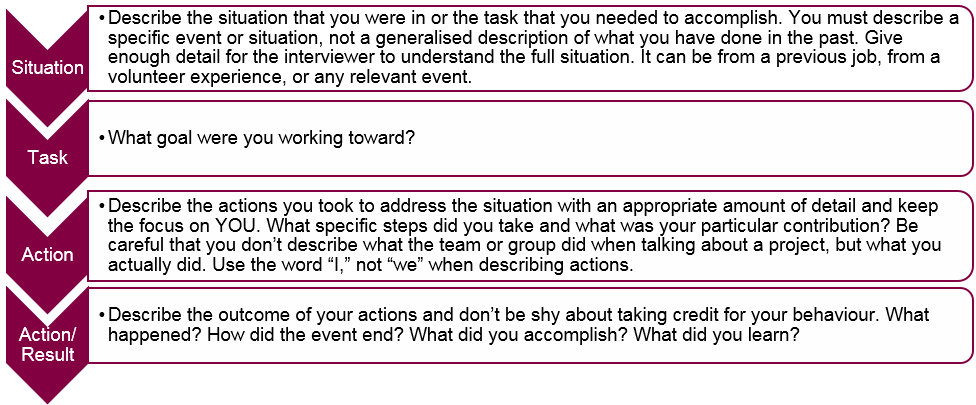- Our vacancies
- Your career
- Our people
- Our culture
- Our benefits
- Career development
- Moving to our region
- Graduate Careers
- Careers for Aboriginal and Torres Strait Islanders
- Careers in Aged Care
- Careers in Allied Health
- Careers at Barwon Early Parenting Centre
- Careers in Cancer Services
- Careers at Cherry Creek Youth Justice Precinct
- Careers in IT/SWARH
- Careers in Nursing
- Careers in Nursing - Emergency
- Careers in Nursing - ICU
- Careers in Maternity Services
- Careers in Medicine
- Careers in Mental Health
- Careers in Operating Services
- Careers in Support Services
- Nursing Careers in Permanent Pool and Casual Bank
- Careers for International Candidates
- Consumer Advisors
- Volunteer Services
A guide to excel in behavioural based interviews
It’s essential that we employ like-minded people who live the Barwon Health values: respect, compassion, commitment, accountability, and innovation. These values underpin who we are as an organisation; it’s what makes us unique and strive for patient centred care. Working for the community is a privilege and it is our duty as interviewers to ensure that the employees we attract are ones that live our values and can prove that by their past behaviour.
However, as soon as we say ‘Behavioural Questions’ those two words and six syllables very easily manage to confuse and challenge candidates who are asked to answer a question based on their previous experience. This article covers what a behavioural question is, how to answer it and why we interview using behavioural based questions.
What is a behavioural question?
It is a technique used by the interviewer to determine whether an applicant is suitable for a position by how they describe past behaviour.
Why do we ask behavioural questions in an interview?
Barwon Health wishes to retrieve and retain the best talent with employees whose values align with our own. The best way we can find the perfect candidate who represents these values is to ask questions based on the premise that your past behaviour is the best predictor of future behaviour. How you answer, is how we get to know you. Behavioural questions shouldn’t be a scary notion, they should be looked upon as a way you can truly tell us in an informed and practical way, that you are the best candidate for the job.
How do you answer a behavioural question?
Remember the STAR model and follow this as a basis to answer the behavioural question in the correct format:

Where do people go so wrong?
Unfortunately if a candidate has not entered the interview prepared to answer behavioural questions common errors involve very long answers with no specific focus on what the interviewer is asking. Numerous candidates lose track of what they are meant to be explaining and often lose sight of a past situation they were presented with.
How can you prepare?
- Consider your highlights and experiences in previous jobs so that you have an understanding of what you can discuss once entering the interview.
- Know our values; this will give insight as to what we look for in a candidate, and base your skillsets around our values.
- Ensure that your answer is relevant to the question being asked! Although this sounds basic it’s a common error most applicants make.
And remember…
- Take your time – we would prefer you take the time to think out a situation you were presented with; the task at hand, the actions you took and the result of these actions. Allowing yourself to think about this will ensure that the answers you give are relevant to the question and that you are answering every element rather than a rushed vacant response.
- Nothing is coming to your head – Ask the interviewer if he/she can come back to that question. I cannot stress how important it is to come back to a question rather than a rushed response that isn’t answering what you did in a past situation.
Behavioural questions will always be challenging but we know you are capable of answering them correctly as long as you come to an interview prepared as to what they are and how to answer them.
